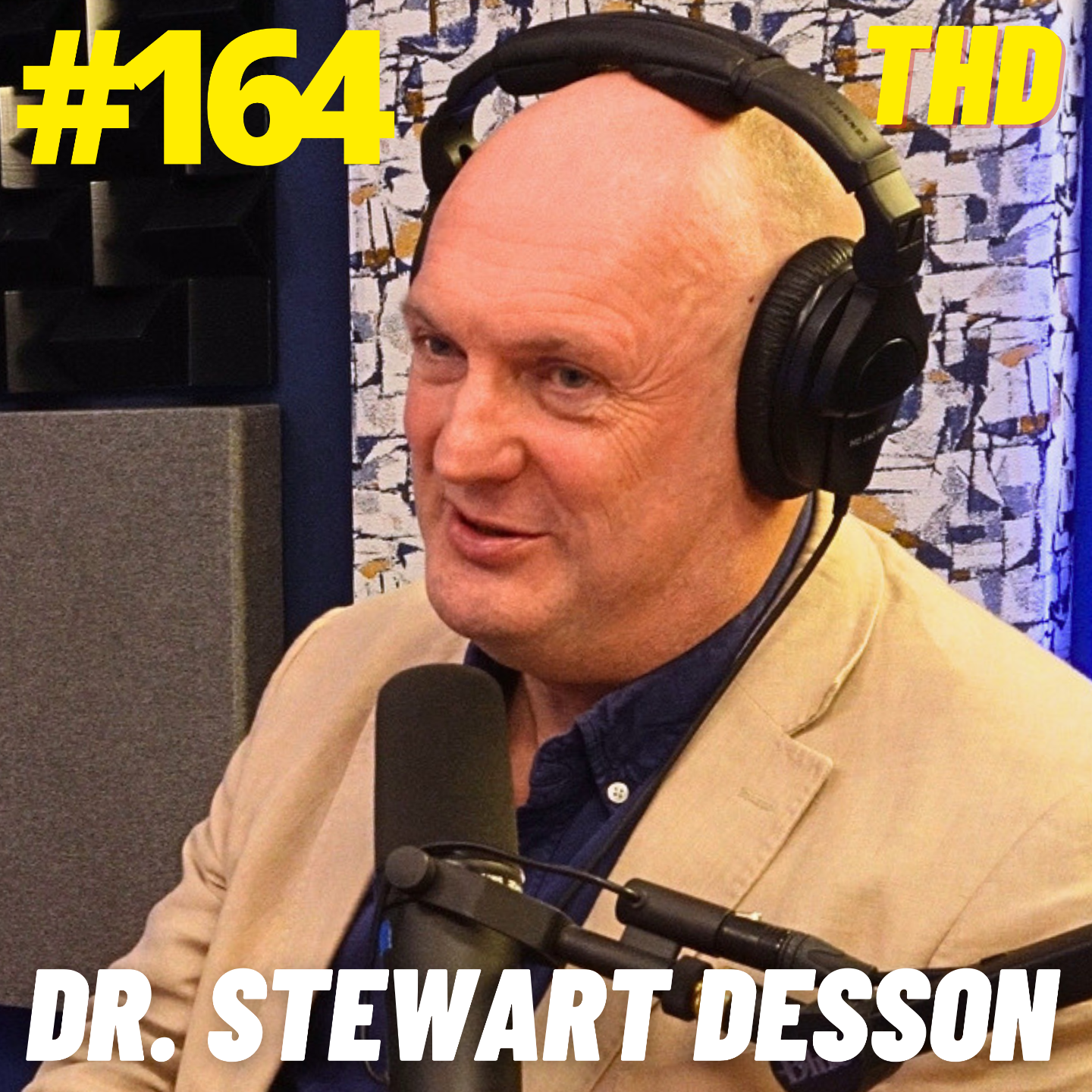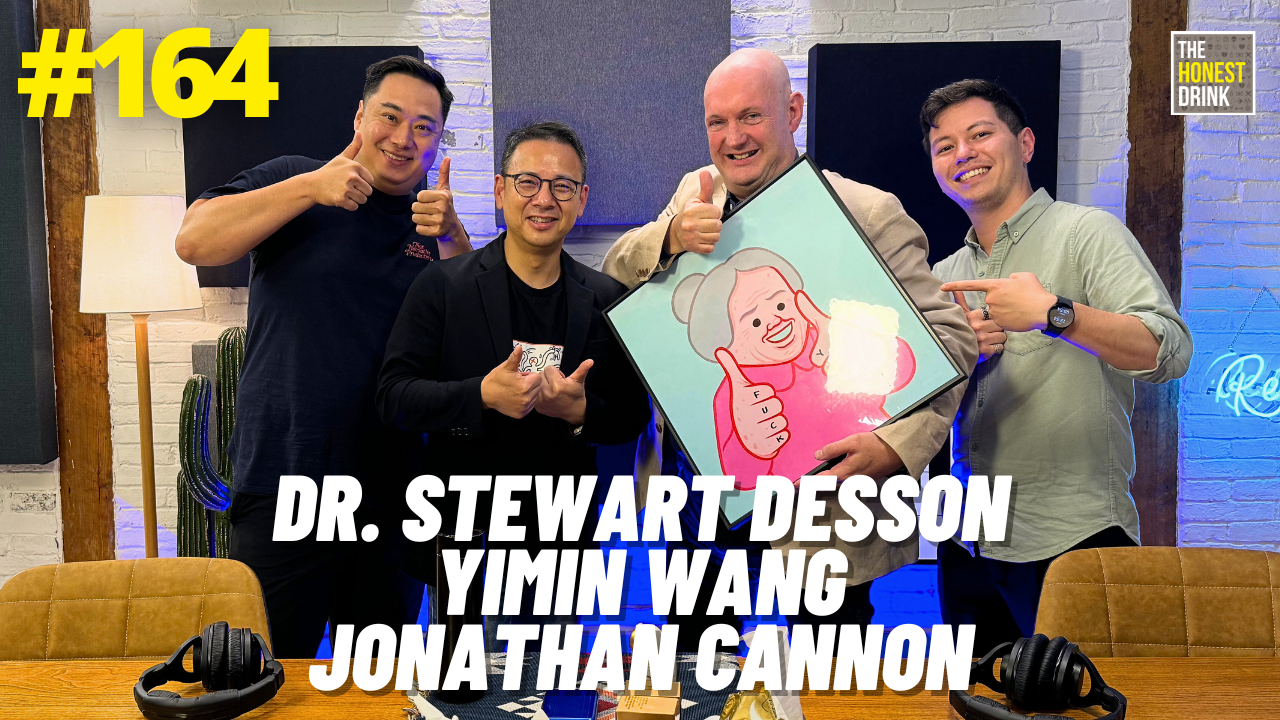
#164. Dr Stewart Desson, Yimin Wang & Jonathan Cannon

THD美籍华人英语访谈秀
Deep Dive
What is the main bias in traditional psychometric tools according to Dr. Stewart Desson?
The main bias in traditional psychometric tools is the overvaluation of extroversion, where enthusiastic leaders are often overvalued, while introverted traits like thinking before speaking or being emotionally reserved are undervalued.
Why does Dr. Stewart Desson advocate for a more inclusive approach in psychometric assessments?
Dr. Stewart Desson advocates for a more inclusive approach because traditional psychometric tools often label and stereotype individuals, particularly undervaluing introverted and neurodivergent traits. He believes in creating tools that help people develop rather than just categorizing them, fostering a more holistic understanding of personality.
What is the significance of neurodiversity in the workplace according to the discussion?
Neurodiversity is significant in the workplace because approximately 20% of the workforce may exhibit neurodivergent traits, such as ADHD. Making workplaces friendly for neurodiverse individuals is not only morally right but also beneficial for organizational health, as diverse cognitive styles can enhance creativity and problem-solving.
How does Dr. Stewart Desson view the role of self-awareness in personal development?
Dr. Stewart Desson views self-awareness as a crucial starting point for personal development, but he emphasizes that it must be followed by actionable steps. Simply being self-aware is not enough; individuals need to actively work on understanding their triggers, managing their responses, and fostering better relationships with others.
What is the Lumina Spark assessment designed to achieve?
The Lumina Spark assessment is designed to provide a more nuanced and inclusive understanding of personality, moving beyond traditional stereotypes. It aims to help individuals and organizations recognize strengths in diverse traits, improve relationships, manage conflicts, and foster personal and organizational growth.
Why is labeling individuals problematic according to the discussion?
Labeling individuals is problematic because it reduces people to static traits, ignoring their potential for growth and change. Labels can create self-fulfilling prophecies, where individuals internalize these tags and limit their own development. This is especially harmful in educational and professional settings, where labels can hinder opportunities.
What is the importance of understanding triggers in personal and professional relationships?
Understanding triggers is important because it allows individuals to pause and choose their responses rather than reacting impulsively. This self-awareness can lead to more effective communication, better conflict resolution, and stronger relationships, both personally and professionally.
How does the discussion address the concept of 'toxic positivity'?
The discussion addresses 'toxic positivity' as a cultural tendency to ignore or downplay negative emotions, leading to inauthenticity. This can be harmful because it prevents individuals from addressing real issues and expressing genuine feelings, which are essential for healthy relationships and personal growth.
What is the role of empathy in effective leadership according to the conversation?
Empathy plays a critical role in effective leadership by helping leaders understand and respond to the emotions and needs of their team members. It fosters a supportive environment where individuals feel valued and understood, which can enhance collaboration, morale, and overall team performance.
How does the discussion suggest individuals can better navigate workplace culture?
The discussion suggests that individuals can better navigate workplace culture by understanding their own strengths and triggers, seeking organizations that align with their values, and fostering open communication. It also emphasizes the importance of self-awareness and assertiveness in building effective professional relationships.
- Traditional psychometric tools often overvalue extroversion and undervalue introversion.
- Lumina Spark offers a more humanistic and inclusive approach to personality assessment.
- The discussion touches upon the impact of psychometric assessments on personal development and organizational culture.
Shownotes Transcript
 Dr. Stewart Desson is a leading expert in psychometrics and is the developer of the renowned personality assessment, Lumina Spark. His approach is a blend of the “analytical” and the “humanistic” for personal and organizational development. He is also on the board of the Association for Business Psychology (ABP) and is the CEO of Lumina Learning.
Dr. Stewart Desson is a leading expert in psychometrics and is the developer of the renowned personality assessment, Lumina Spark. His approach is a blend of the “analytical” and the “humanistic” for personal and organizational development. He is also on the board of the Association for Business Psychology (ABP) and is the CEO of Lumina Learning.
Yimin Wang is a personality development and leadership coach. He is one of the highest certified people development coaches in China, the CEO of Sense Consulting and a Global Partner of Lumina Learning.
Jonathan Cannon is a certified business psychologist working in psychometrics. He is responsible for the research & development of Lumina Learning and its core psychometric assessments.
Today we talk about the challenges of personality stereotypes, psychological & neuro diversity and the impact of psychometric assessment tools on personal development and organizational culture. We talk about the prevalence of bias and labeling in traditional psychometric tools and society, particularly the overvaluation of extroversion. We talk about the need for a more inclusive approach in recruitment and hiring practices and explore the strengths associated with different neurodivergent traits. We also talk about improving relationships, managing conflicts, our sense of control over our lives, what it takes to actually change our personalities, and if thats even possible.
下载节目文字版: Episode Transcripts)
If you enjoy this show don't forget to leave a rating and subscribe!
小红书: THD The Honest Drink
Follow Us On IG: @thehonestdrink_
Join Us On WeChat: THD_Official
Email: [email protected]
Find us on: Spotify, Apple, Google Podcasts, YouTube, 小宇宙, 喜马拉雅, 网易云音乐, 小红书, Bilibili or anywhere you get your podcasts.